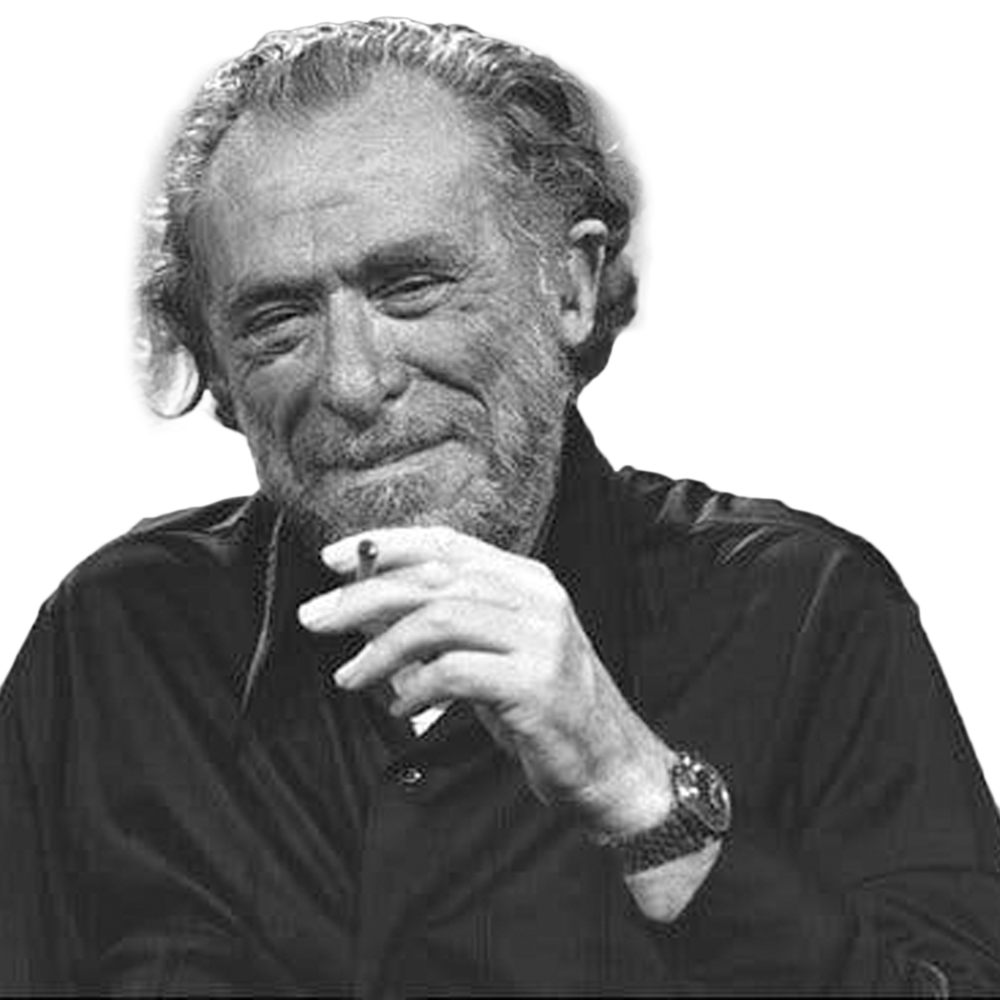The World is a Rhyme, and our Hearts set the Pace
Poetry has always intrigued me. To me, poetry is like reading someone's diary. It shouldn't be done without permission, context, and a whole lot of knowing the person writing it. To read and analyze poetry without understanding who the author is seems foolish to me; in fact, it seem unethical, as we're essentially "deciphering" a person's thoughts whom we do not know.
Such an act makes us label a person as something or someone that may not even be the true meaning of their poem.
One example is Charles Bukowski. After reading some of his works, his style of writing and his poetry enthralled me. How could a man, coddled only by struggle and pain, think of such beautiful, heartwrenching stanzas defining his thoughts and life? From a strangers perspective(and even my inital view of him), his vulgarity seems to be his only method of writing, as it cries for attention at the fact that he's been through hell, and he's never left it.
That's wrong though, as he learned to embrace pain, even going as far as to glorify it in his life. But you would only know that through reading his books and other works, which are all semi-autobiographies.
For this reason, I stand by my claim that reading poetry on someone whom we do not know puts us in a situation where we judge their views[and by extension their character] by their stream of conciousness, and not by their actions.
Are we not the first ones to preach that "Do what man does, not what he says"? Yet we fall into our same old habits, over and over again.
Another point that serves as an interesting point of contention is the idea of humility in the poetic. Is it really humble to circumvent a conclusion by labeling all possible means of interpretation? To a layman, it may seem smug or egotistical that the very hubris these poets use is what they call their "humility".
We may take the example of writers for that part, as all writers are known to be different. While both Camus and Kafka have a similar philosophy, the two went about their method with stark contrast. Camus retained a slightly joyous tone, insinuating insanity, while Kafka embodies the very insanity Camus toyed with. While Camus was raised without a father, Kafka's father abused him regulary, terrifying the young Kafka into writing stories about him.
Is it fair to compare both authors, and to generalize their humilty? I think not, as both authors and their works should be read in different contexts, understanding their backgrounds and lifestyles before indulging in their thoughts.
In essence, I believe writing is a documentation of the minds thoughts, some of which are closer to a person's consience than even the very family they share those thoughts with. Of such forms of writing, I believe poetry is the form closest to man's conscience, and to read his or her poetry is truly a privilege to us. These poets expose the very core of their being in order to send a message about how they feel, or what conclusions can be derived from their circumstances in their mind. It is innaporpriate for someone to joke about adoption to an orphan, yet we do that very thing when we read poetry from someone we have not acquainted ourselves with.





Comments
Post a Comment